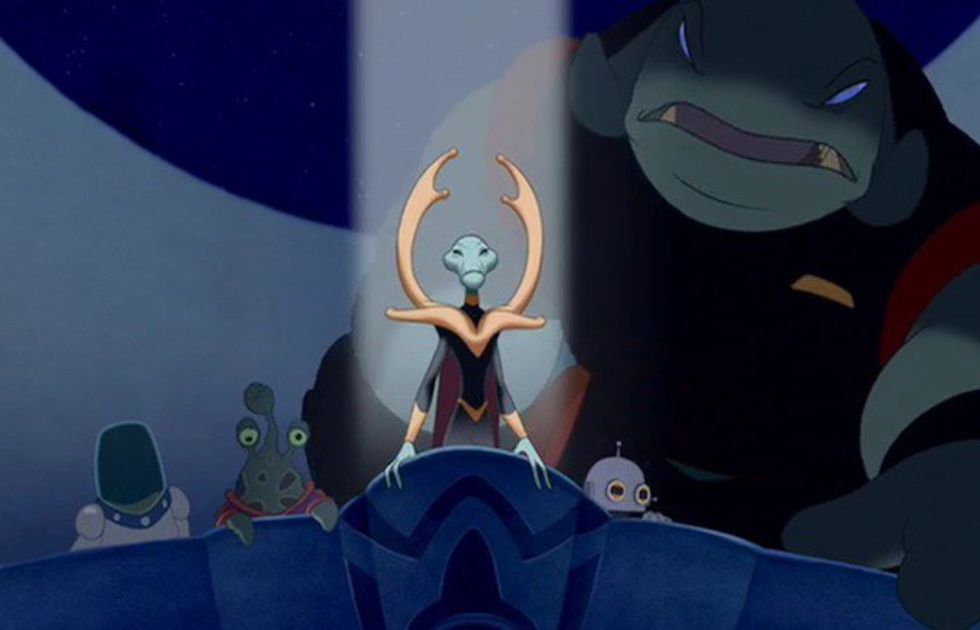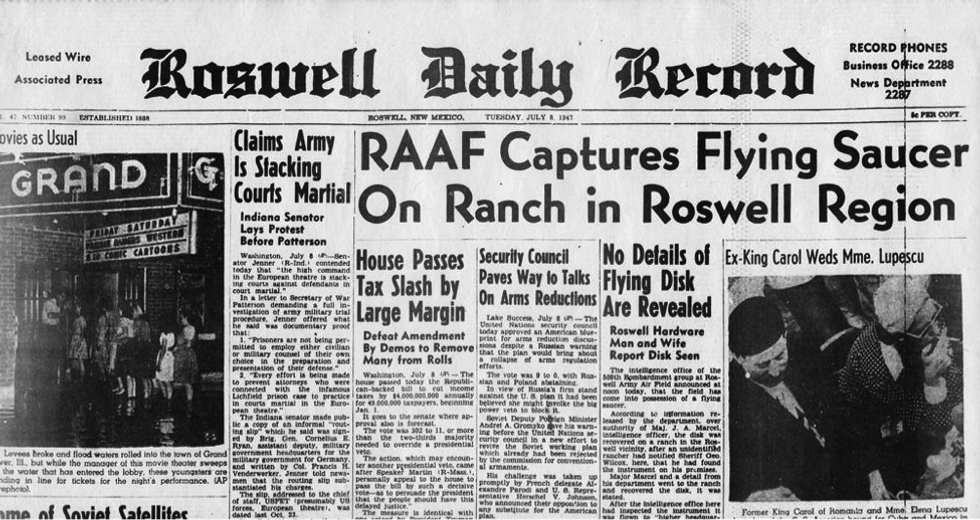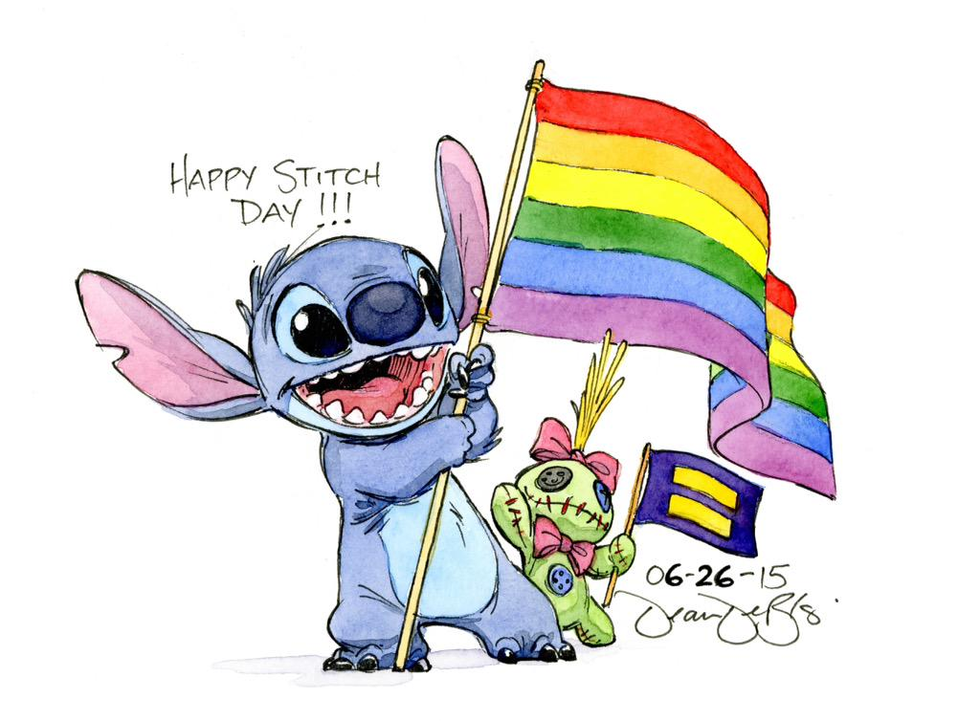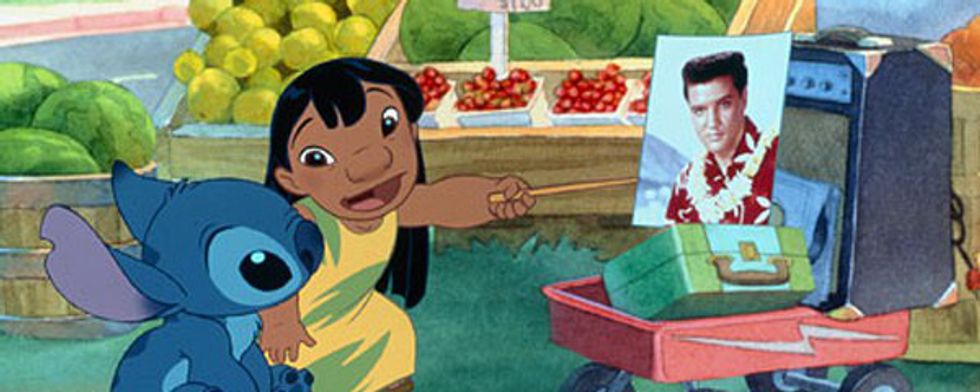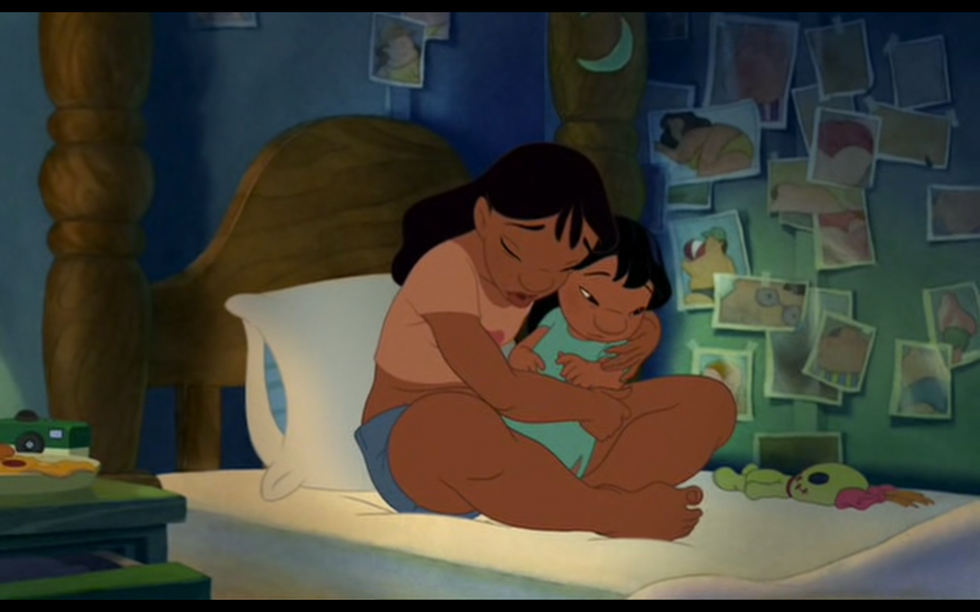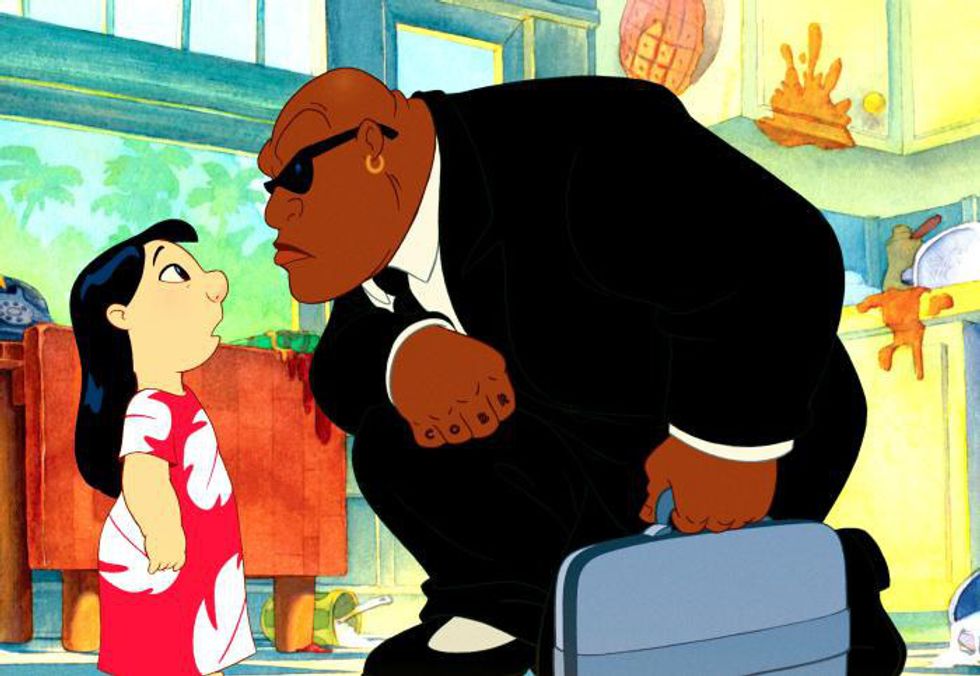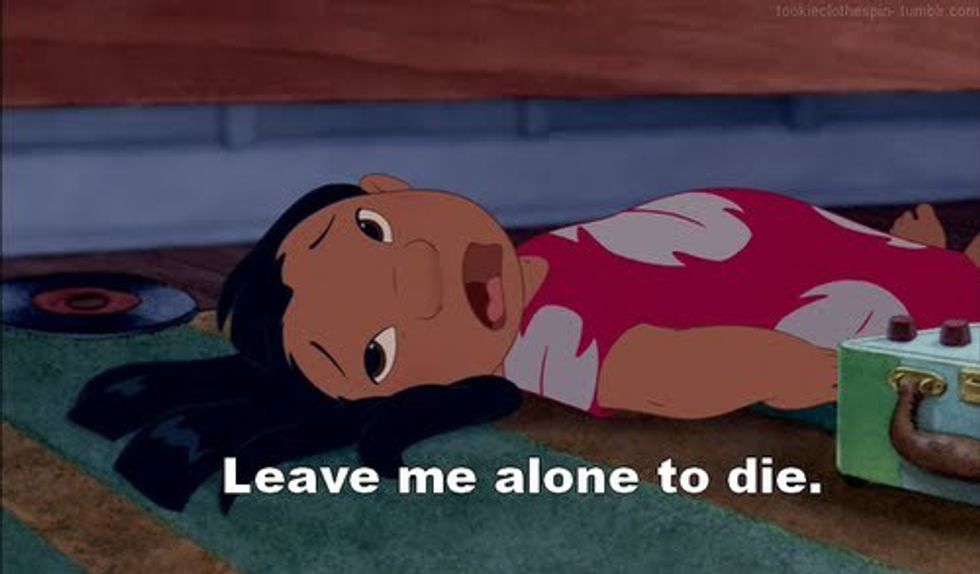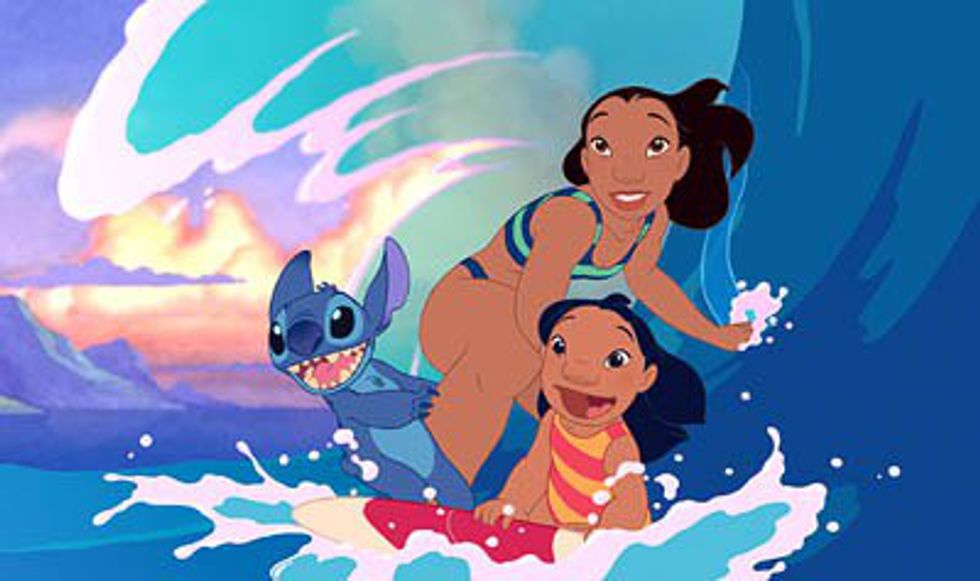Lilo & Stitch, a Disney animated movie released in 2002, was a movie which I immediately connected with on so many levels. Other than the fact that it is a Disney science-fiction animated masterpiece, Lilo & Stitch spoke to me on more personal levels, even as a seven-year-old boy.
This is the list of reasons why Lilo & Stitch is my favorite Disney cartoon of all time.
1. Science Fiction
Disney did an unbelievably outstanding job writing this animated film. The inclusion of scientific elements, such as genetic experimentation, aliens (especially when referencing to humans as “very delicate”), as well as futuristic alien-type space ships, explosions caused by the combustion of gasoline, and other science-y type things, was one of the first things that got me interested in how things work in the world.
2. “Aliens are all about rules”
Cobra Bubbles said it best. The alien lifeforms in the movie strictly adhere to the rules and regulations set forth by their laws and codes. As a Criminal Justice major who has always been fascinated by law and order in society, this particular aspect of the movie appealed to me.
3. Roswell
As an added bonus in a movie about alien lifeforms and human interactions with the same, the writers of Lilo & Stitch creatively incorporated the infamous Roswell alien sightings into the movie, by means of mentioning that Cobra Bubbles was a former CIA agent who worked in tandem with the Grand Councilwoman alien to cover up any traces of their existence and brief presence here on Earth.
4. Experiment 626
Although this particular aspect of Lilo & Stitch didn't become relevant until 2015, the greatness of it was not lost on me, and is therefore one of my favorite things about Experiment 626, also known as Stitch. On June 26, 2015, the Supreme Court of the United States ruled in Obergefell v. Hodges that the marriage between same-sex couples was a right protected under the United States' Constitution. This reflects one of the movie's overarching themes that being different from society isn't a bad thing. Many LGBT youth and adults feel as if the difference in who they love compared to heterosexuals makes them inherently bad, but, as seen in the movie, being different is a blessing in disguise. Because Stitch is the only one of his species, he truly feels isolated and utterly alone. However, he learns that his differences only make him stronger and he learns to embrace that about himself. In fact, because of Stitch, others around him, such as the Grand Councilwoman, soon learn the same lesson.
5. Native Hawaiian Music, Landmarks and Language
Among many glorious aspects of this wonderfully-created movie comes the many examples of native Hawaiian music. My two favorite songs that exemplify this are Hawaiian Roller Coster Ride and He Mele No Lilo, the film's main theme song. Both songs feature the Hawaiian language, which is beautiful in any form, but when sung, sounds so melodic and enticing, and let’s be honest: it makes you want to get up and dance. The movie also features notable Hawaiian landmarks, first and foremost that it was set in the Hawaiian city of Kauani. The most notable landmark appears in the end credits (as well as on a poster in Lilo's bedroom), which features a "surfer statue," located in Hawaii on Waikiki Beach. The feature of this statue in the film pays homage to Duke Kahanamoku, who was a native Hawaiian who is credited as being the "Father of modern surfing" and was also an Olympic gold medalist.
6. Elvis Presley
Lilo's favorite musical artist of all time is none other than Elvis Presley, the King of Rock 'n' Roll. Quite a number of his songs are featured in the film, including Hound Dog, Heartbreak Hotel, You're the Devil in Disguise, and Blue Hawaii, among others. The inclusion of Elvis Presley's works in the movie adds to its greatness due to the fact that many of my generation have lost touch with such great artists as The King.
7. Sibling en loco parentis
'En loco parentis' is a Latin term that simply means "acting as the parent." As the third-oldest out of five children of a single mother growing up, my eldest brother, Matt, was forced to grow up and mature faster than normal teenagers usually do, taking on many responsibilities that a parent would assume, including (but not limited to) babysitting his younger siblings, working a full-time job to help Momma pay bills, helping his younger siblings with homework, and teaching us life lessons and morals. I am eternally grateful for the role my brother played in raising us, because out of all of us, he was the only one equipped to handle such responsibilities over us rambunctious, often-troublemaking kids.
8. Presence of Social Services
Social services is a non-stop theme throughout the movie. Nani is under investigation by the governmental agency for being a neglectful guardian of a young child, even though she is still quite young herself. The social worker, Cobra Bubbles, describeds himself as saying, "I'm the one they call when things go wrong. And things have indeed gone wrong." Throughout my childhood, for various reasons, Social Services was constantly involved in my family's life, often doing more harm than they did good. The movie also portrays Social Services as an entity that wants to take Lilo away from her home, yet another correlation between the movie and my childhood. The difference is that Lilo never is removed from Nani's care, while my two younger siblings and I were taken from out home and placed int he foster care system, which, in my opinion, is no place for an already-broken child to ever enter.
9. Lilo is an Oddball
In many ways throughout the film, Lilo is portrayed as a weird little kid. She is wise beyond her years, however, due to the fact that she is able to recognize this. Lilo is also the victim of group bullying by the other girls her age, due to her erratic and spontaneous nature. Oftentimes as a child, and even sometimes nowadays, I still feel the same way Lilo does, that "people treat me differently." However, I love Nani's response to Lilo's statement: "They just don't know what to say."
10. Ohana
In the movie, Lilo and Nani are all alone because their parents are gone. Lilo hints that they perished in a car accident during a rain storm. Even still, their bond as a family never falters, even when the two are visible at odds with one another. One of the lessons that Lilo remembers learning from her late father was the Hawaiian phrase "Ohana," which literally translates to "family," but goes even deeper than just that one word. Lilo says, "Ohana means family. And family means nobody gets left behind or forgotten." I think that, out of all the troubles, trials, and strife my family has experienced, our bond as a family is unbreakable. Ohana perfectly describes my family and our attitudes about what 'family' means to us.



